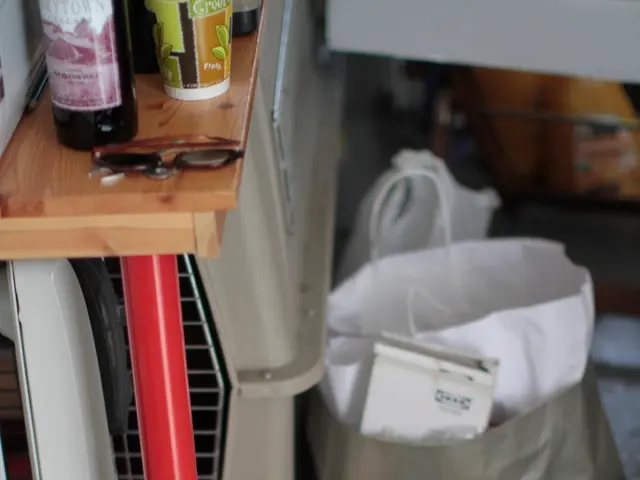Organ Donation: Should Donation be an Opt-In or Opt-Out Approach?
A Global Look at Organ Donation: Opt-In vs. Opt-Out
Organ donation policies vary widely across the globe. A prime question: should a donor register as they opt in, or should the system default to opt out? To delve into this, researchers from the UK took a deep dive into the organ donation protocols of 48 countries to uncover which method is most effective.
With opt-in, people must manually sign up to a registry to allow for organ donation posthumously. On the other hand, in opt-out systems, organ donation will proceed automatically, provided no specific request has been made before death to withhold organs.
Prof. Eamonn Ferguson, the lead author from the University of Nottingham, UK, confirms that the reliance on individuals' active decisions can bring challenges:
"People may not act for various reasons such as loss aversion, inertia, and trusting the government has made the right decision."
While inaction in an opt-in system could result in individuals who'd be willing donors not donating (a false negative), inaction in an opt-out system could potentially lead to someone who doesn't wish to donate becoming a donor (a false positive).
The US adheres to an opt-in system, with 28,000 transplants carried out last year due to organ donors. Regrettably, around 18 individuals die each day due to a shortage of donated organs.
Pick a Side?
Researchers from the University of Nottingham, University of Stirling, and Northumbria University in the UK analyzed the organ donation systems of 48 countries for 13 years, 23 of which utilized an opt-in system, while the remaining 25 opted for opt-out.
The study authors measured the overall donor numbers, the number of transplants per organ, and the total number of kidneys and livers transplanted from both deceased and living donors.
They found that countries with opt-out organ donation policies had higher total kidney donation numbers - the most sought-after organ by those waiting for transplants. Opt-out systems also recorded higher overall numbers of organ transplants.
Opt-in systems, however, had a higher rate of kidney donations from living donors. This influence of policy on living donation rates "has not been reported before," notes Prof. Ferguson, "and is a subtlety that needs to be emphasized."
The authors acknowledge that their study was limited by not distinguishing different degrees of opt-out legislation and the varying requirements for next-of-kin permission. Additionally, other factors influencing organ donation remained unevaluated due to the observational nature of the study.
The Way Forward
The researchers conclude that their findings, published in BMC Medicine, show that opt-out consent may lead to an increase in deceased donation but a decrease in living donation rates. Opt-out consent is also linked to an increase in the total number of livers and kidneys transplanted.
They suggest that these results could be used in the future to shape policy decisions and could be strengthened by the regular collection and public release of international organ donation data, such as consent type, procurement procedures, and hospital bed availability.
Prof. Ferguson proposes that future studies should also delve into the views and preferences of individuals in relation to opting in or out:
"Additional research should focus on individual views on the subject of organ donation, exploring beliefs, wishes, and attitudes using survey and experimental methods."
The authors note that opt-out consent countries still grapple with organ donor shortages. A simple system change may not be the solution. Instead, they suggest that consent legislation or incorporating elements of the "Spanish Model" could help boost donor rates.
Spain boasts the highest organ donation rate globally. The Spanish use opt-out consent, but their success is accredited to additional factors such as a transplant co-ordination network operating both locally and nationally, and improvements in public information about organ donation.
Recently, Medical News Today featured a spotlight piece on whether farming animal organs for human transplants could alleviate the organ shortage. Is this a viable solution, or is it a problem best addressed through policy changes regarding organ donation?
Penned by James McIntosh
Organ donation policies around the world show significant variation, with the question of opt-in versus opt-out systems at the heart of the debate. In opt-in systems, individuals must actively register as organ donors, while opt-out systems automatically authorize organ donation provided no explicit objection has been expressed.
Researchers from the University of Nottingham, University of Stirling, and Northumbria University studied the organ donation systems of 48 countries over 13 years. They found that opt-out systems, such as those in 25 of the surveyed countries, resulted in a higher number of total kidney donations and overall organ transplants.
On the other hand, opt-in systems recorded a higher rate of kidney donations from living donors. This influence of policy on living donation rates, though subtle, was a discovery not previously reported.
The US adheres to an opt-in system and registered 28,000 transplants last year, but regrettably, around 18 individuals still die daily due to a scarcity of donated organs.
The study's authors suggest that their findings could contribute to future policy decisions. However, they also propose that additional research should delve into the beliefs, wishes, and attitudes of individuals regarding organ donation.
Other potential solutions could include modifications to current consent legislation or incorporating aspects of the "Spanish Model," which combines opt-out consent with a robust transplant coordination network and comprehensive public information about organ donation.
Recently, discussions have arisen about the possibility of farming animal organs for human transplants as a means of alleviating the organ shortage. However, some question whether this is a viable solution or whether the issue should be addressed through policy changes regarding human organ donation.
These debates are not limited to the realm of science and medical-conditions but extend into policy-and-legislation, general-news, and even politics. The choices made in this context will have far-reaching consequences for health-and-wellness and global society as a whole.








